8 Top Crypto Wallets for May 2025
| View Offer |
|---|
| ADVERTISEMENT |
Blockchain technology has made digital currency transactions increasingly accessible. However, as the number of crypto traders has gone up, so have the rates of theft and fraud related to cryptocurrencies. That’s why it’s important to understand how crypto works, how it’s stored and what to look for in a crypto wallet — whether it’s digital or physical.
What to know about crypto wallets
- Crypto wallets are necessary to hold cryptocurrencies. They come in two versions: hot, which is available as software or web-based apps, and cold, most of which are physical devices.
- The best hot wallets are highly secure and easy to use on desktop and mobile devices, whereas the best cold wallets should be of a convenient size and competitively priced.
- Traders who are serious about crypto should opt for a non-custodial crypto wallet, which means you will have direct access to your crypto — and unfettered ownership thereof.
- Many crypto wallets allow you to swap assets within their app or device by connecting to a crypto exchange.
Some people searching for crypto wallets are actually looking for a crypto exchange. If you’re more interested in learning where to buy and sell cryptocurrency without a crypto wallet — as well as the difference between centralized and decentralized exchanges — read our piece on the Best Crypto Exchanges .
How we chose our top picks
Our group of writers and editors has dedicated several years to studying crypto wallets. By consulting specialists and collecting details from reliable resources, we pinpointed more than 30 crucial factors for assessing these wallets, such as their security rankings and examinations, support for Web3, cryptocurrency staking opportunities, and the variety of accepted digital currencies.
Read our full methodology to learn more.
Our top choices for the finest cryptocurrency wallets in May 2025
- Exodus – Top Cryptocurrency Wallet Recommendation Overall
- Zengo – Top Cryptocurrency Wallet for New Users
- Sparrow - Top Cryptocurrency Wallet for Bitcoin
- BlueWallet - Top Mobile Wallet for Bitcoins
- Trust Wallet - Top Mobile Cryptocurrency Wallet
- MetaMask – Best Web3 Wallet
- Trezor Model One - Top Choice for Beginner Hardware Wallets
- Ledger Nano Flex – Top Premium Hardware Wallets

|
|---|
| Start Investing |
| ADVERTISEMENT |
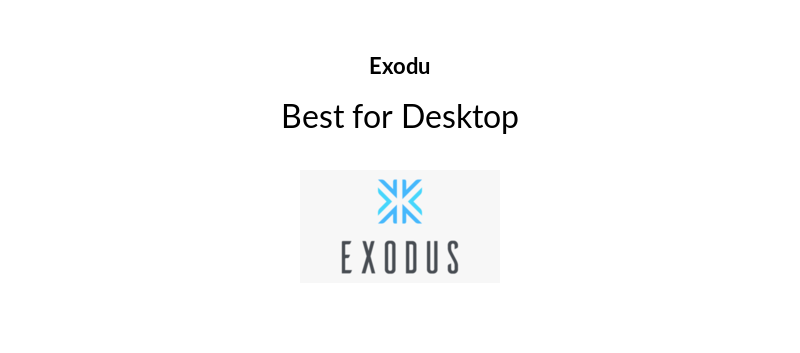
|
|---|
| View Offer |
| ADVERTISEMENT |
Pros
- Supports assets across more than 50 blockchain networks
- Built-in compatibility with Trezar hardware wallets
- Permits exchanging cryptocurrency right within the application.
- High security marks across the board
Cons
- No control over exact transaction fees
- Lacks third-party audits
HIGHLIGHTS
Platform(s)Android, Brave, Chrome, iOS, Linux, Mac, WindowsCER Security RatingAAACertiK Skynet Score84.42 (A)Why we chose it: Exodus is an excellent option for a variety of investors — particularly to those managing diverse portfolios — thanks to its broad asset support, thousands of trading pairs and built-in crypto swapping. The wallet’s ease of use across platforms and consistently high marks for security add to this, making it a reliable choice regardless of your goals.
Learn more by reading our full Exodus review.

|
|---|
| View Offer |
| ADVERTISEMENT |
Pros
- No seed phrases or private keys
- Round-the-clock customer support
- Intuitive, user-friendly interface
- Straightforward setup process
Cons
- Low number of supported crypto networks
- High fees on in-app exchange
HIGHLIGHTS
Platform(s)Android, iOS, Linux, Mac, WindowsCER Security RatingAAACertiK Skynet Score84.67 (A)Why we chose it: Zengo eliminates much of the usual intricacy associated with cryptocurrency wallets by doing away with intricate seed phrases and private keys, instead using multi-party computation (MPC) cryptography, known as a keyless security approach. Its user-friendly interface enhances this wallet's accessibility for newcomers. Additionally, features like round-the-clock live customer assistance and an easy-to-follow set-up procedure facilitate swift integration for novice users.
Discover more details by checking out our complete document. Zengo wallet review.

|
|---|
| View Offer |
| ADVERTISEMENT |
Pros
- Lightweight, multi-platform desktop wallet
- Compatibility with all popular hardware wallets
- Comprehensive transaction editor
- Several server connection options
Cons
- Needs comprehension of the basics of Bitcoin
- There will be no swaps involving native tokens or pathways for converting fiat money.
HIGHLIGHTS
Platforms: Linux, Mac, Windows CER Security Rating: Not applicable CertiK Skynet Score: Not applicableWhy we chose it: Sparrow Provides full control of your bitcoins along with adjustable trading fees, allowing selection among public, private, or Bitcoin Core servers for trade operations. Additionally, it features a transaction editor acting like a blockchain explorer and boasts lower storage needs thanks to being a lightweight client. Furthermore, this wallet integrates support for the Lightning Network—a fast-payment protocol based on bitcoin designed for quicker transactions.
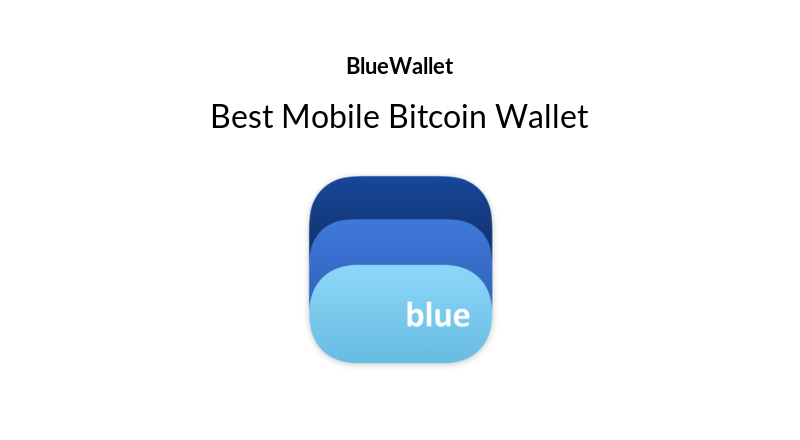
|
|---|
| View Offer |
| ADVERTISEMENT |
Pros
- Contemporary design featuring a user-friendly interface
- Thunderbolt, multisignature, read-only, and hierarchical deterministic wallets
- Notification system for Bitcoin wallet applications
- Large assortment of payment choices
Cons
- Lack of educational resources
- Highly technical features
HIGHLIGHTS
Platform(s)Android, iOS, MacCER Security RatingNot applicableCertiK Skynet ScoreNot applicableWhy we chose it: BlueWallet offers numerous sophisticated trading capabilities to mobile wallets through an exceptionally user-friendly interface that simplifies the management of your Bitcoin. These features encompass Lightning Network wallets for quicker and more cost-effective exchanges; support for batch, broadcast, and partially signed transactions; along with push notifications to ensure users stay informed about their wallet activities.
Learn more by reading our full BlueWallet review.
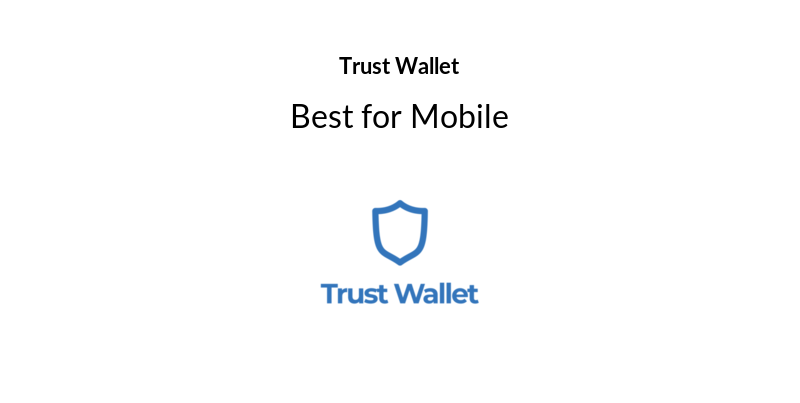
|
|---|
| View Offer |
| ADVERTISEMENT |
Pros
- Native NFT viewing for Ethereum and BNB Chain NFTs
- Designed for mobile with a simple, clean interface
- One of the largest number of supported coins
- Swap tokens directly inside the wallet
Cons
- Restricted personalization options for transaction costs
- No live customer support
HIGHLIGHTS
Platform(s)Android, Brave, Chrome, Edge, iOS, OperaCER Security RatingAAACertiK Skynet Score85.24 (A)Why we chose it: Trust Wallet is an excellent generalist wallet for mobile users, boasting extensive support for NFTs and other Web3 projects. It receives high scores on security assessment platforms and features the highest number of supported assets and chains of any wallet on our list. It’s also one of the easiest wallets to use on mobile thanks to its in-app token swaps and accessible interface.
Learn more by reading our full Trust Wallet review.
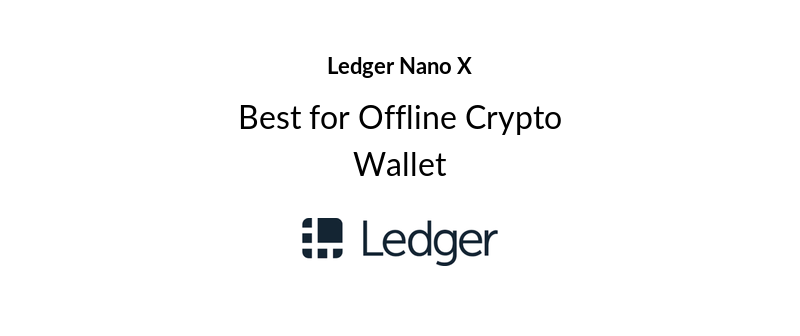
View Offer
ADVERTISEMENT
Pros
- Examine and approve dealings from one interface.
- E Ink® display for enhanced legibility
- Supports over 5,500 coins and tokens
- CC EAL6+ certified security element chip
Cons
- Increased vulnerabilities because of enhanced connectivity
- Ledger Live is needed for complete features.
- New and relatively untested
HIGHLIGHTS
Platforms: Android, iOS, Linux, Mac, Safari, Windows Size: 3.07 x 2.22 x 0.33 inches Security Rating: CCC*Security rating and platforms for the brand’s official app, Ledger Live .
Why we chose it: The Ledger Flex is full of features that enhance its usability and security. On top of a 2.84” touchscreen and its compact size, the wallet is equipped with a specialized, tamper-proof chip for storing private keys and signing transactions. The Flex can also seamlessly connect to other devices thanks to its near-field communication (NFC) chip, which keeps critical data such as private keys away from prying eyes.
Learn more by reading our full Ledger review.
The alternative cryptocurrency wallets we evaluated
Best Wallet
Premium Wallet provides a sleek mobile platform and seamlessly connects with decentralized finance applications and non-fungible token platforms. Additionally, it features integrated portfolio monitoring and cryptocurrency exchanges, thus serving as a comprehensive one-stop service. Its distinctive benefits encompass privacy since customers aren’t required to share personal details for account creation, along with priority registration for tokens from collaborating partners.
Why it didn’t make the cut: Best Wallet is still relatively new and lacks the track record of older, more established wallets. However, if its extensive roadmap is anything to go off of, the wallet’s future is bright given the number of advanced features in the works.
Coinbase Wallet
Backed by one of the most trusted names in crypto, Coinbase Wallet supports a wide range of assets, dApps and NFTs. It boasts several security features, including transaction previews, biometrics and dApp blocklist, to name a few. The wallet’s educational content is another highlight; namely, its “Quests” section lets you earn crypto by learning new skills.
Why it didn’t make the cut: The Coinbase Wallet falls short when compared to other non-custodial options due to limited advanced customization and developer features. Additionally, despite being non-custodial, its strong connections with the centralized Coinbase platform could raise worries for certain individuals.
Tangem
The Tangem Wallet distinguishes itself with its credit-card sized design featuring an NFC-enabled hardware component that operates without needing a battery or wires. This wallet boasts a secure chip certified at EAL6+, which is the same high-level security standard found in passports. Furthermore, its firmware has undergone rigorous reviews conducted independently by Kudelski Security, a firm based in Switzerland, as well as Riscure, an internationally recognized security lab.
What prevented it from being included: Although Tangem's security approach is cutting-edge—storing the private key on a chip and utilizing a mobile app for control—it could still spark worries among users who prefer open-source validation or conventional security methods. Additionally, Tangem lags behind some competing hardware wallets when it comes to supporting a wide range of assets.
The essentials you should understand regarding cryptocurrency wallets
Even though they're called cryptocurrency wallets, these do not actually keep cryptocurrencies. Instead, they contain digital codes referred to as "keys," which provide entry to your crypto assets recorded on the blockchain—a kind of online transaction log.
When someone sends you cryptocurrency, they’re not transferring physical or digital coins to your wallet. Instead, they’re updating the blockchain to show that the ownership of a certain amount of crypto or of a tokenized asset has been assigned to your wallet’s address.
To find your address on a blockchain, your wallet relies on two key pieces of information:
- A public key This refers to an alphanumeric sequence created automatically by the cryptocurrency wallet service. Here’s an illustration: a public key might appear as follows: B1fpARq39i7L822ywJ55xgV614.
- A private key This is an additional sequence of characters that consists of both numbers and letters, known exclusively by the wallet’s owner.
Think of cryptocurrency wallets more like email addresses instead of mere storage spaces for digital currency. Just as providing your email address allows people to send emails to you, sharing your public key enables others to send cryptocurrencies to your wallet. But just as you wouldn’t hand over your email’s login credentials, you shouldn’t disclose your private key—the critical element controlling access to your funds—under any circumstance.
These combined keys enable you to exchange cryptocurrency securely without undermining the transaction’s reliability. Others can see your public key, but only you should have access to your private key, which confirms your ownership. Upon verification of both keys, your crypto wallet’s balance will adjust appropriately—either increasing or decreasing as needed.
In short, a crypto wallet is your gateway to the blockchain — it identifies you, stores your access credentials and keeps your digital assets safe.
Types of crypto wallet
There are two types of crypto wallet: hot wallets and cold wallets. The former are always connected to the internet while the latter are kept offline. Some wallet brands operate under a hybrid model, offering both software and hardware solutions for crypto management.
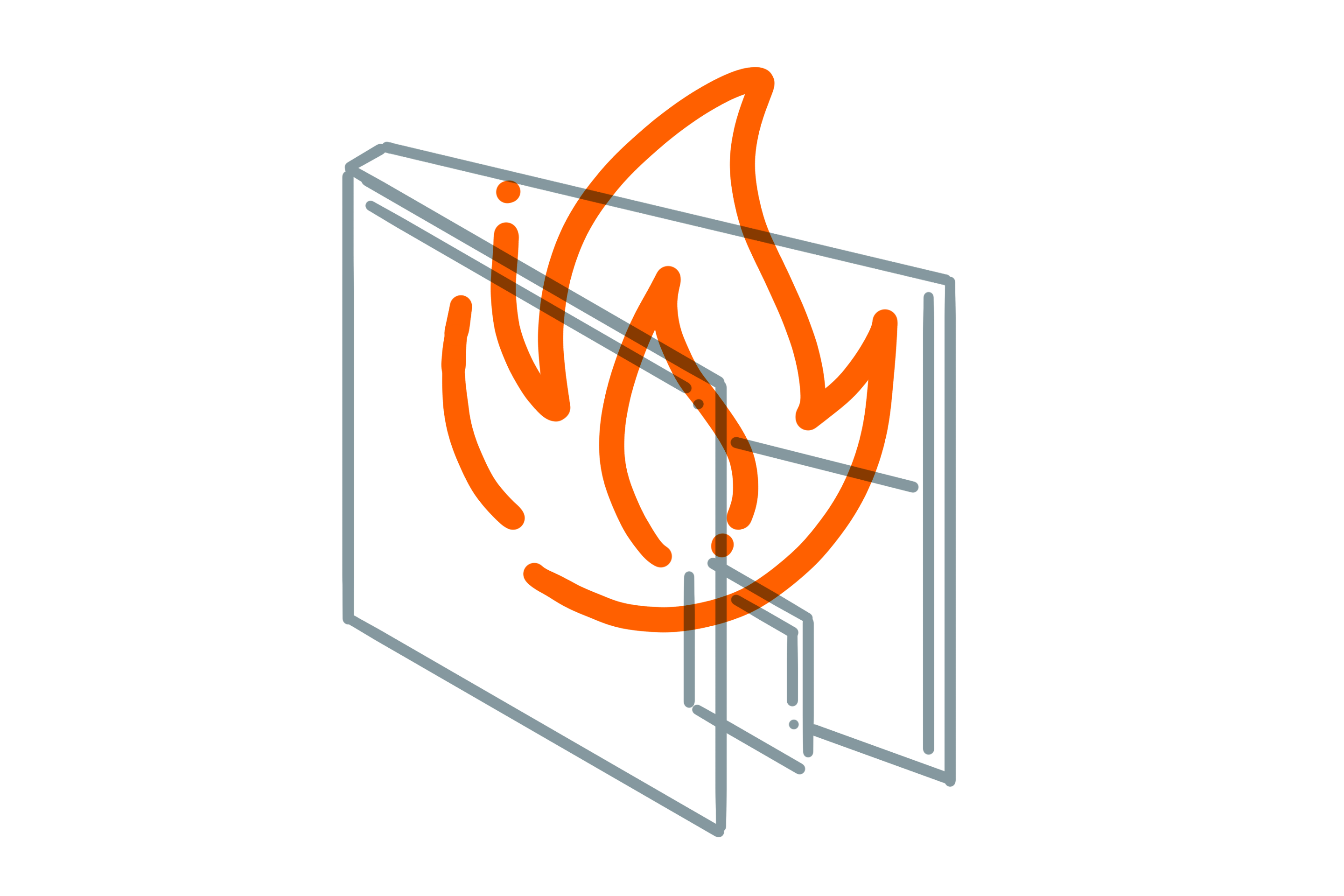
Hot wallets
Hot wallets are digital tools whose connection to the internet cannot be severed. They allow users to access and manage their crypto via their phones, desktops or web browser of choice.
The main benefit they offer is convenience; public and private keys are kept and encrypted inside the application or site, allowing users to reach their funds from any location with online access. This makes them particularly suitable for active traders or individuals who frequently use cryptocurrencies.
At the same time, this constant online connectivity also leaves hot wallets more vulnerable to cyberattacks, particularly through software exploits or malware, with web wallets hosted by exchanges being especially attractive targets for hackers.

Cold wallets
Cold wallets are intentionally created to resist hacking attempts. By keeping your cryptographic keys away from internet-connected devices, they can be stored securely offline using mediums like hardware devices similar to USB drives or tangible formats including printed papers or etched metals, thereby providing substantial security against distant cyber threats.
Hardware wallets allow crypto transactions only when connected to a computer, while paper wallets use printed QR codes or written keys. Their offline nature makes them nearly impervious to cyberattacks — hackers would need physical access to the device and its password to steal funds.
Nevertheless, such high-level security poses a danger: Should you lose your wallet or keys without having made backups, accessing your cryptocurrency will probably be impossible forever. This isn’t an issue with hot wallets because they frequently provide recovery via a seed phrase—a primary key for your digital wallet comprising 12 to 24 randomly chosen words.
Key features to search for when choosing a cryptocurrency wallet
When looking for the best cryptocurrency wallet, it’s very important to first ask yourself:
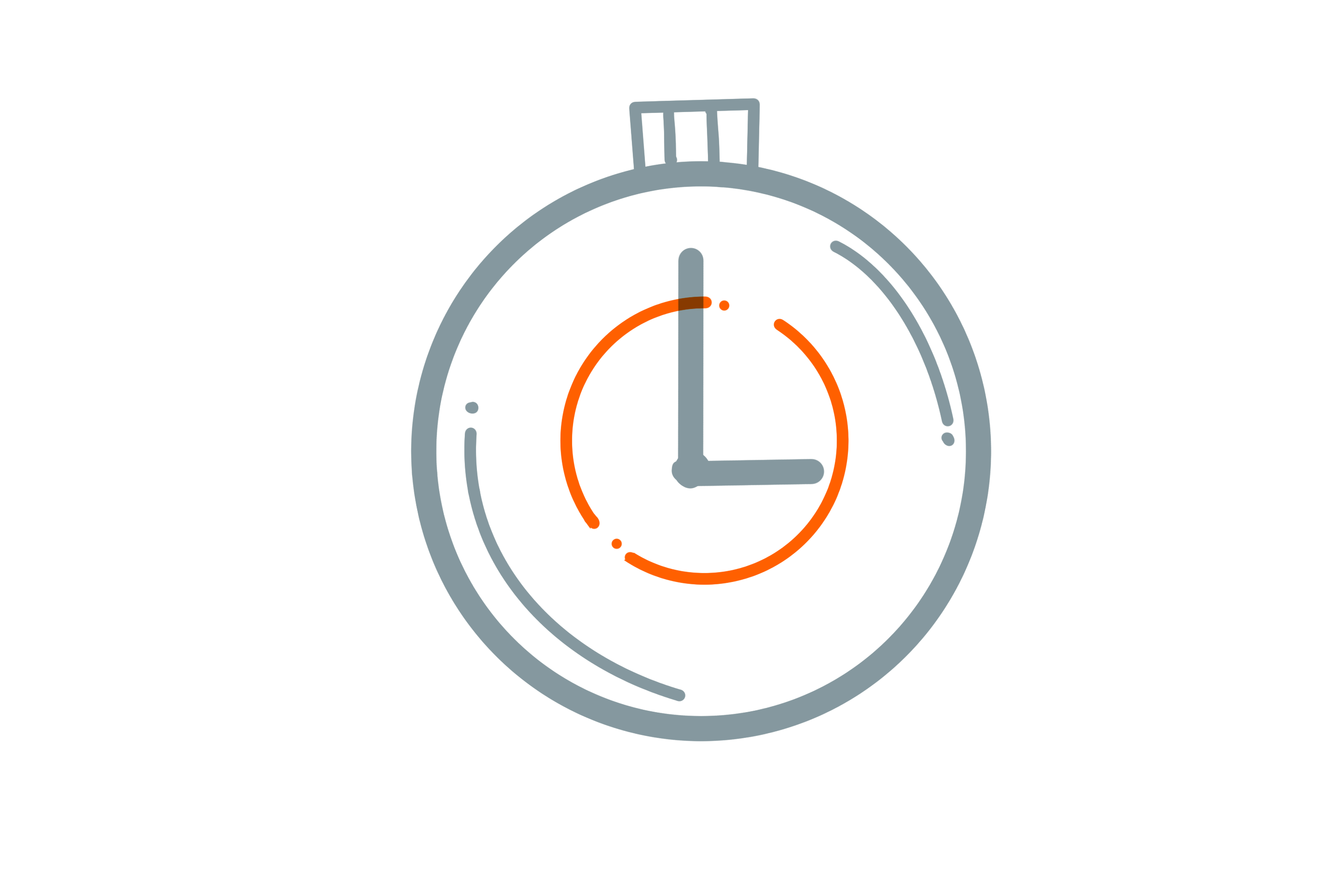
- How frequently do I make trades? Will you choose to purchase and keep cryptocurrency forever—HODLing ("Hold on for Dear Life"), as crypto enthusiasts call it—or do you plan to trade often? Active traders find hot wallets more advantageous because of their quick access and ease of use, whereas cold storage is advisable for storing your digital assets over an extended period.
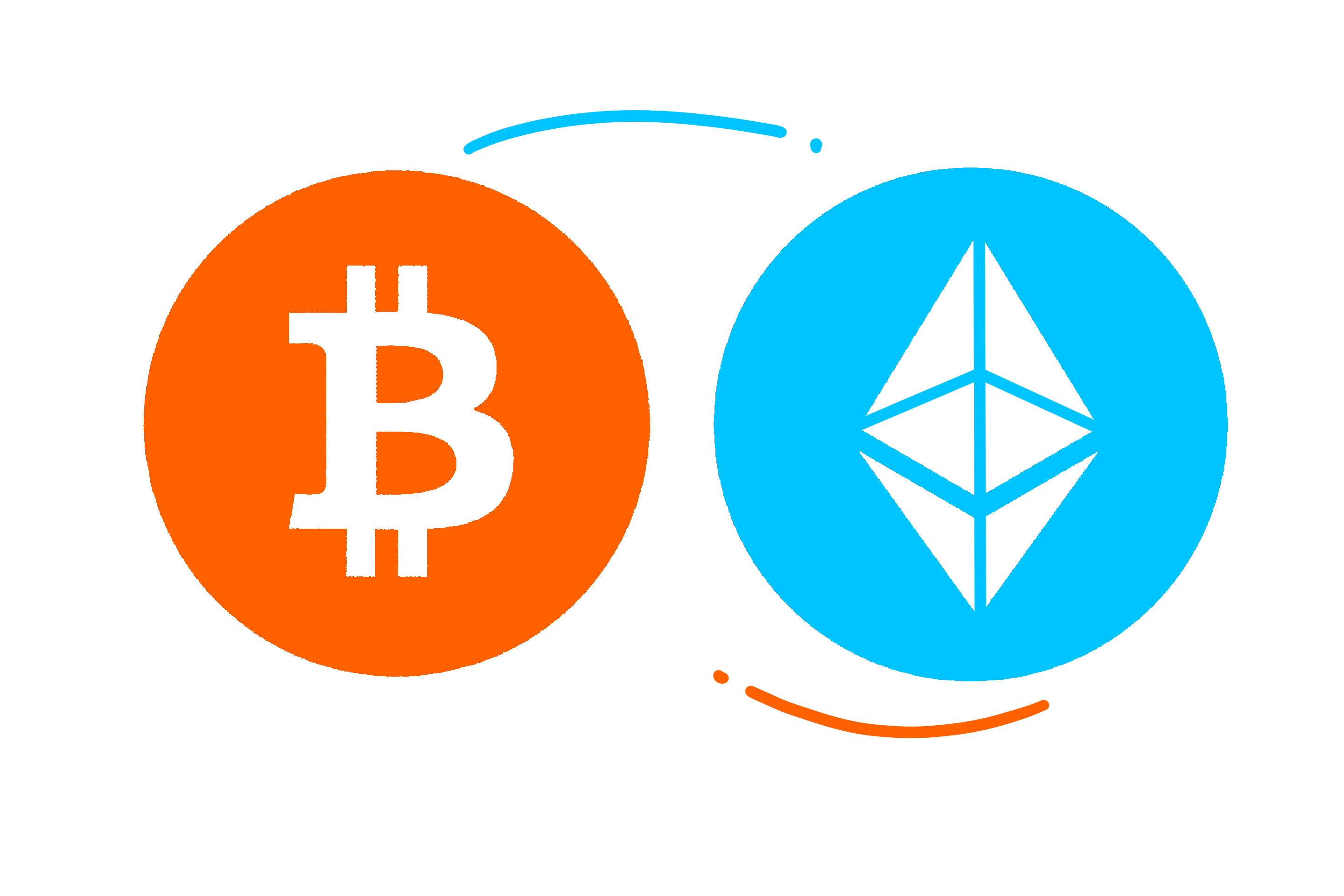
- What am I looking to exchange? Are you planning to purchase and hold Bitcoin, or are you more intrigued by different types of cryptocurrency , like altcoins and stablecoins? The crypto wallet you pick should support the currencies you wish to trade and will ideally accommodate any other coins you may want to trade in the future.
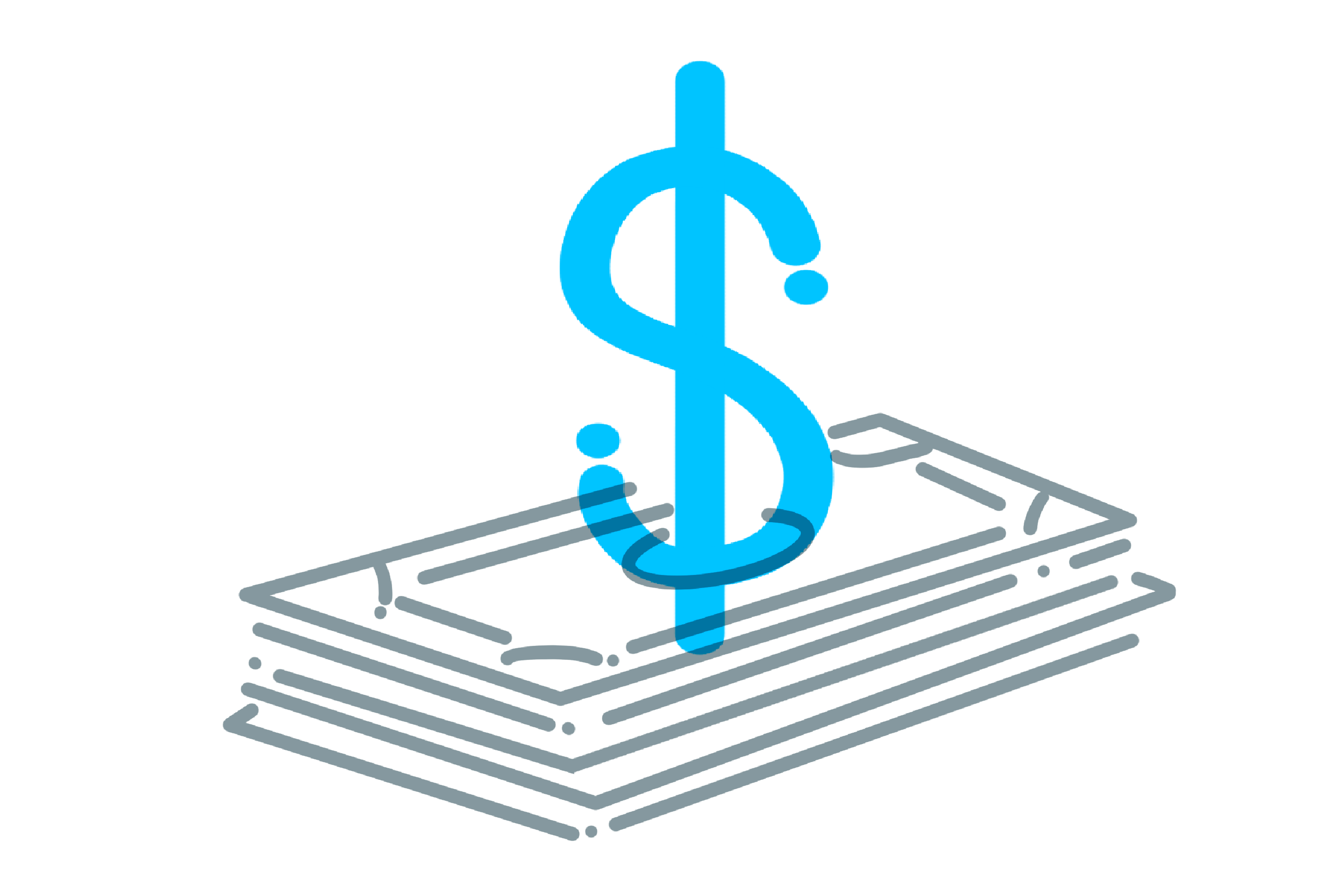
- How much am I willing to spend? Are you looking to amass significant quantities of cryptocurrency? In that case, hardware wallets would be perfect for your needs. However, as opposed to hot wallets (which are typically available at no cost), hardware wallets necessitate an initial expenditure to acquire them. Many hot wallets often come with elevated additional costs. crypto trading fees yet provide quicker transactions or enhanced features.

- What should I look for in a wallet? Are you considering any activities related to cryptocurrency aside from purchasing, selling, or exchanging it? For instance, those interested in generating passive income might explore wallets that support crypto lending or staking.
Investing in crypto prudently
Cryptocurrencies have been present for quite some time, yet they remain a fairly novel form of finance. Many find them thrilling as an investment category because these digital currencies offer decentralization outside traditional banking systems. The volatility can add excitement, and certain cryptocurrencies even bring a touch of humor into play.
Consider the story of Dogecoin A blend of "bitcoin" and internet meme "Dogecoin," this cryptocurrency gained significant traction on the social discussion site Reddit and swiftly amassed a market capitalization of $8 million. Following Tesla’s CEO, Elon Musk, along with Redditors who were part of the GameStop short squeeze movement, turning their focus toward it, Dogecoin reached an unprecedented peak valuation exceeding $90 billion.
Consider the case of Hawk Tuah, which was developed by a group of cryptocurrency enthusiasts along with Haliey Welch, the individual who brought prominence to this concept during the summer of 2024. The digital token HAWK skyrocketed to achieve a market capitalization of $490 million but plummeted just as rapidly. Within mere hours, it shed 90% of its worth—a classic instance pump and dump scam .
It goes beyond meme coins such as DOGE and HAWK; even Bitcoin, the original pioneer of cryptocurrency, has gone through several significant drops over time. Cryptocurrencies remain inherently unstable and extremely fluctuating investments, thus they must be handled carefully. When contemplating whether to put money into crypto, keep these potential risks in mind:

Crypto is volatile. A quick look at the historical price of Bitcoin is enough to see massive peaks and troughs throughout its lifespan. The same goes for any other major cryptocurrency. These dramatic swings in price are not normal compared to the pace at which most mainstream assets — like stocks, exchange-traded funds (EFTs) and other types of equities — move in value.

Cryptocurrency isn't supported by any underlying asset. Many coins lack an intrinsic asset, such as gold, silver, or other metals, which would typically set their worth. Unlike Treasury securities, these aren’t supported by governmental backing. Additionally, unlike stocks and exchange-traded funds (ETFs), they don't reflect the future profitability prospects of corporations.
Cryptocurrencies are considered speculative assets as well, known for their higher risk associated with significant price volatility. Numerous active traders engage in these digital currencies hoping to reap substantial gains when their values rapidly rise, ideally before they experience a sharp decline.

Crypto is unregulated. Countries and organizations around the globe continue to struggle with determining how to oversee cryptocurrencies, questioning whether these digital assets require dedicated laws for regulation or if they should remain unregulated altogether.
In the U.S., there isn’t a singular authority governing every aspect of cryptocurrencies. Nonetheless, multiple agencies enforce certain regulations. For instance, the Securities and Exchange Commission (SEC) oversees cryptocurrency under the purview of securities laws, whereas the Internal Revenue Service (IRS) considers cryptocurrency as property for taxation purposes.
Although this absence of regulations aligns with the essence of cryptocurrency and its commitment to freedom, the deficiency in proper oversight leaves consumers vulnerable to numerous crypto-related crimes and frauds. In conclusion, cryptocurrency needs thorough examination and cautious management.
Best Crypto Wallet FAQs
Are crypto wallets free?
Many hot wallets -- mobile apps, desktop software, browser extensions -- are free to download and use. They don't charge fees for holding your crypto either, though the in-wallet exchanges they feature might. Cold wallets, most of which are hardware devices, come with a one-time purchase cost. This ranges from as low as $49 for an entry-level wallet to as high as $500 for high-end models.Can I have more than one crypto wallet?
Certainly, you can possess multiple cryptocurrency wallets—indeed, many individuals maintain several. You could utilize a hot wallet for daily activities or quick trades and opt for a cold wallet to keep significant sums of digital currency over extended periods. Additionally, traders often employ various wallets to manage different cryptocurrencies, mitigate risks, and streamline organization of their assets.Is a wallet required for purchasing cryptocurrency?
It’s not strictly necessary to use a wallet to purchase cryptocurrencies, but it is strongly advised to get one, particularly if you plan to keep your digital currency for an extended duration. Even though numerous cryptocurrency exchange platforms allow buying and storing cryptos directly through their systems, owning a personal wallet offers enhanced protection for your funds. Additionally, this arrangement lets you maintain complete authority over your private key, echoing the common adage among crypto enthusiasts: “Not your keys, not your coins.”What occurs if I misplace my cryptocurrency wallet?
You can usually recover a lost crypto wallet using your seed phrase, a sequence of 12 to 24 words that you receive when first setting up the wallet. Some wallets have begun to incorporate different recovery methods or use cryptography that avoids private keys altogether. However, for most wallets, losing your seed phrase means your crypto is likely unrecoverable.Which type of wallet is more secure, hot wallets or cold wallets?
Hardware wallets typically offer greater security compared to software wallets since they keep your private keys off-line, thus shielding them from the majority of web-based risks. Software wallets, although easier to use across various gadgets due to their constant connection to the internet, become more susceptible to hacking attempts as a result.How we selected the top cryptocurrency wallets
TheMoney team examined 44 cryptocurrency wallets—comprising 26 hot wallets and 18 cold ones—and assessed them according to their security, functionality, and user-friendliness. Since these wallet categories do not have identical features, they factored in distinct criteria for each type. As an example, cold wallets typically receive lower ratings from most security evaluation services; thus, external audit reports become particularly crucial.
Security
The aspect that carried the most significant weight throughout our assessment was security. Ultimately, the primary reason many individuals opt for a crypto wallet is to ensure the safety of their coins and tokens.
We began assessing security by examining ratings from reputable evaluation websites such as Certik, Coinspect, and CERTIFIED. These platforms score wallets using various metrics like participation in bug bounty initiatives, past security breaches, measures for preventing threats, and outcomes of penetration testing sessions.
Unfortunately, not every wallet shows up on these platforms. Because of this, we continued with our own research, considering each company’s network and app security, authentication options, code audits, certifications and more.
Functionality
For functionality, we mainly focused on the trading features each wallet offers. Crypto wallets with a larger number of tradable assets, live market charts, Web3 support, customizable transactions and staking capabilities were highly favored by us. For bitcoin-only wallets, we also considered any features that sped up transactions, such as support for the lightning network.
User experience
If you can’t figure out your own wallet, there’s no point in using it in the first place. We favored wallets that were easy to use for casual and dedicated traders alike thanks to intuitive interfaces, 24/7 live support and educational content. For cold wallets, we also considered the dimensions of each device, the quality of their screen and any hardware components meant to improve usability.
Overview of Top Cryptocurrency Wallets for May 2025
- Exodus – Top Cryptocurrency Wallet Recommendation Overall
- Zengo - Ideal Cryptocurrency Wallet for New Users
- Sparrow - The Top Cryptocurrency Wallet for Bitcoin
- BlueWallet - Top Mobile Wallet for Bitcoins
- Trust Wallet - Top Mobile Cryptocurrency Wallet
- MetaMask – Best Web3 Wallet
- Trezor Model One – Top Choice for Beginner Hardware Wallets
- Ledger Nano Flex – Top Premium Hardware Wallets
© Copyright 2025 Money Group, LLC . All Rights Reserved.
The piece initially appeared on Romero.my.id And these might include affiliate links through which Money earns commissions. The views stated here belong solely to the author and do not reflect the opinions of any external party. Additionally, they haven’t been vetted or supported by such entities. Please note that offers can vary unexpectedly. To learn more details, please refer to their website. Money’s full disclaimer .
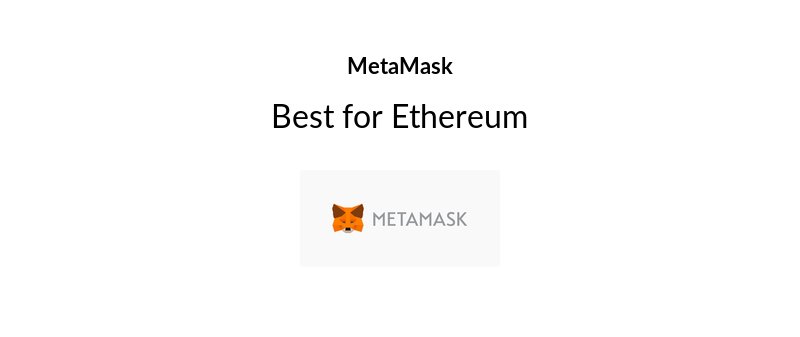

0 Response to "8 Top Crypto Wallets for May 2025"
Post a Comment